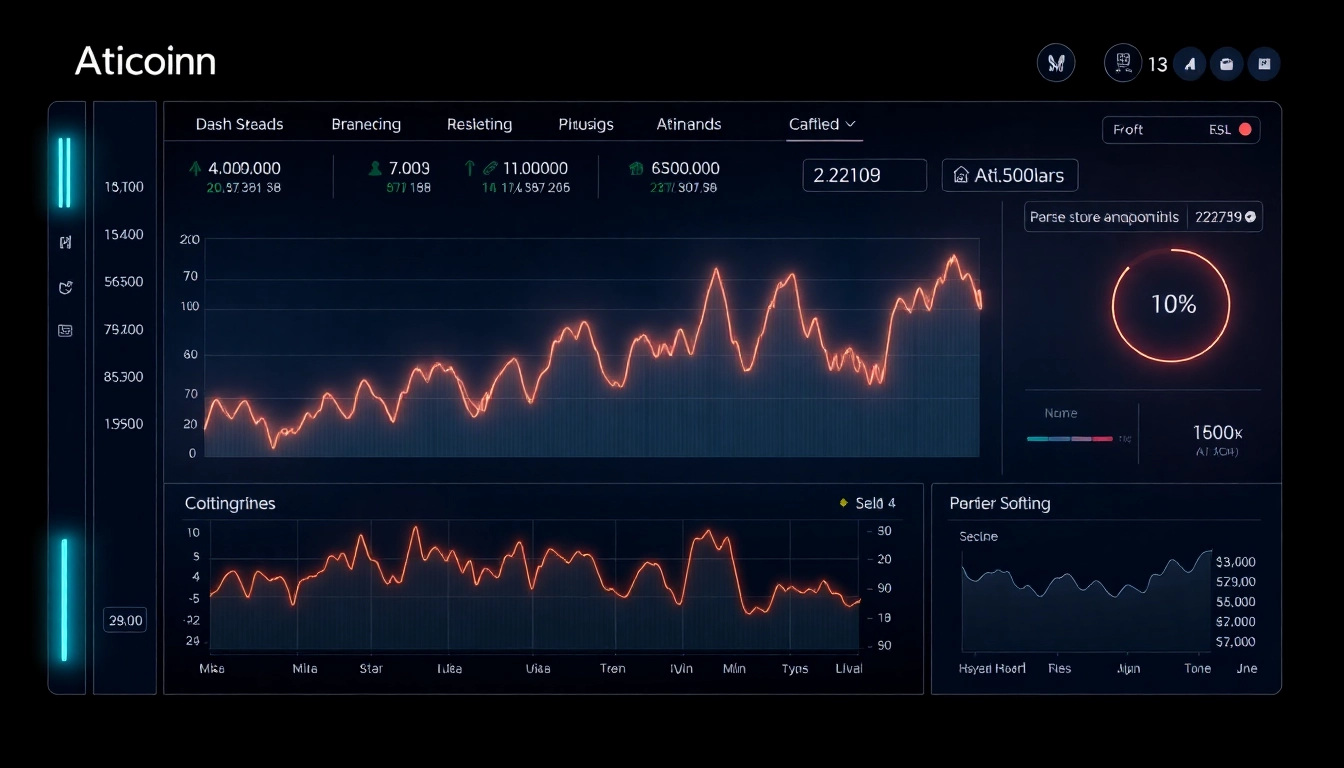
Maximizing Construction Efficiency Through Strategic Equipment Rental: A Comprehensive Guide
Understanding Construction Equipment Rental: Key Benefits and Overview
In the dynamic world of construction, the efficient use of resources directly impacts project success, timelines, and profitability. One increasingly popular approach to managing equipment needs is construction equipment rental. This strategy offers numerous advantages over outright purchasing, especially for firms aiming to optimize operational flexibility and reduce capital expenditures.
Construction equipment rental involves leasing machinery and tools for specific project durations, providing access to a wide array of specialized equipment without the long-term financial commitment. This approach is particularly beneficial given the fluctuating demands of construction projects, regional differences, and evolving technology.
The model caters to both large and small-scale projects, encompassing everything from heavy machinery like excavators and cranes to smaller tools such as compactors and power drills. As companies seek cost-effective, reliable, and flexible solutions, the rental market has expanded significantly in the UK, driven by trusted providers who ensure maintenance, safety, and operational support.
By understanding how construction equipment rental works, businesses can make informed decisions that enhance productivity, safety, and overall project management, setting the foundation for successful outcomes.
Advantages of Renting Equipment vs. Buying
Cost Savings and Capital Flexibility
One of the primary reasons companies opt for rental over purchasing equipment is cost efficiency. Purchasing machinery involves significant upfront investment, ongoing maintenance costs, and potential depreciation. Rentals, on the other hand, convert capital expenditures into predictable operational expenses, freeing up cash flow for other critical areas.
Access to the Latest Technology
The construction industry is continually evolving with new technological innovations that improve efficiency, safety, and environmental compliance. Rental providers frequently update their fleets, allowing contractors access to the newest models and features without the burden of ownership, which can quickly become obsolete.
Flexibility and Scalability
Rental arrangements provide unparalleled flexibility. Contractors can source specific equipment for particular phases of a project, scaling up or down as needed. This flexibility helps prevent idle assets and optimizes team productivity.
Reduced Maintenance and Downtime
Reputable rental companies handle maintenance, repairs, and safety inspections, minimizing downtime and operational risks. This assurance allows project managers to focus on core construction activities rather than equipment concerns.
Risk Mitigation
Ownership exposes companies to risks such as equipment obsolescence, fluctuating resale values, and unexpected repair costs. Rental agreements transfer these risks to service providers, who maintain standards and compliance.
These benefits collectively contribute to more agile, budget-conscious, and competitive construction operations, making equipment rental a strategic choice across numerous project types.
Cost-Effective Solutions for Construction Projects
Tailored Rental Packages
In the UK, leading providers offer custom rental packages aligned with project scopes and durations. Whether for short-term tasks or long-term operations, flexible leasing options can be designed to optimize costs.
Reducing Inventory Overheads
Maintaining a fleet of construction machinery involves storage, insurance, and continuous upgrades. Rental solutions eliminate these overheads, enabling firms to allocate resources more efficiently.
Enhancing Project Profitability
By avoiding significant capital outlays and minimizing unexpected maintenance expenses, rental equipment helps improve overall project margins. Strategic rental management can also prevent project delays caused by equipment shortages.
Leveraging Economies of Scale
Large rental companies operate extensive fleets, allowing them to offer bulk discounts and superior logistics support. Smaller firms can benefit from these economies, gaining access to high-grade machinery at competitive rates.
Choosing the Right Construction Equipment for Your Project
Types of Equipment Available for Rental
The UK rental market offers an extensive range of machinery suitable for diverse construction activities:
- Excavators and diggers
- Bulldozers and loaders
- Rollers and compactors
- Dumpers and telehandlers
- Concrete mixers and slips
- Power tools such as drills, saws, and grinders
- Scaffolding and lifting equipment
Access to such a wide inventory ensures that projects are equipped with precisely what they need, when they need it, streamlining workflows.
Factors to Consider When Selecting Machinery
The selection process should be thorough and strategic:
- Project scope and requirements: Understand the specific tasks and the equipment needed to accomplish them efficiently.
- Duration of use: Short-term projects may benefit from on-demand rentals, whereas long-term ones might negotiate better rates for extended leases.
- Site conditions: Terrain complexity, environment, and space constraints influence equipment choices.
- Compatibility and capacity: Ensure machinery can handle the workload volume and integrates with existing operations.
Matching Equipment to Project Scope and Duration
An effective approach involves detailed planning:
– Conduct site assessments to determine specific needs.
– Collaborate with rental providers for expert advice.
– Align rental periods with project timelines, avoiding excess rental costs.
– Consider modular or multipurpose equipment to maximize utility.
– Plan for equipment transitions between project phases seamlessly.
Best Practices for Safe and Efficient Equipment Use
Operational Guidelines and Worker Training
Safety begins with well-trained operators. Proper training ensures equipment is used within specified parameters, reducing accident risks. Many rental companies provide operator manuals, safety instructions, and sometimes onsite training.
Adopting standard operating procedures (SOPs) and conducting regular safety briefings foster a safety-first culture.
Maintenance and Safety Checks Before Use
Pre-operation inspections are crucial:
– Verify hydraulic systems, brakes, and attachments
– Check fluid levels and tire conditions
– Conduct functional tests to ensure operational readiness
– Record inspection results for compliance and accountability
Regular maintenance schedules, managed by rental providers, further guarantee safety and performance.
Compliance with UK Safety Standards
UK construction safety standards, overseen by legislation such as the Health and Safety at Work Act and Construction (Design and Management) Regulations, mandate rigorous safety protocols. Rental companies must provide machinery that complies with CE certification and UK safety regulations.
Contractors must also ensure their staff adhere to PPE requirements, safety signage, and operational protocols.
Streamlining Your Rental Process: Tips for Success
Partnering with Reputable Equipment Rental Providers
Choosing trusted providers, such as those with extensive UK networks and positive industry reputations, mitigates risks and ensures service quality. Factors to evaluate include:
– Range and availability of equipment
– Maintenance and safety standards
– Customer support and flexibility
– Transparent pricing and contractual terms
Leading providers often offer turnkey services, including delivery, setup, and operator training.
Effective Planning and Scheduling
Detailed project planning minimizes rental costs and avoids delays:
– Forecast equipment needs during the planning phase
– Schedule rentals to match critical project milestones
– Coordinate pickup and return dates to prevent unnecessary charges
– Maintain open communication channels with suppliers for real-time adjustments
Integrating Equipment Rental Into Your Project Timeline
Synchronizing equipment availability with project phases ensures smooth operations. Use project management tools to track equipment deployment, usage, and replenishment schedules, aligning resources at each stage to optimize productivity.
|Construction equipment rental| can be an integral part of strategic project timelines, ensuring that resources are always aligned with operational needs.
Measuring Success: Performance and Cost Metrics
Tracking Equipment Utilization and ROI
Data collection on equipment hours, productivity rates, and downtime helps evaluate rental efficiency. Utilizing fleet management software or rental vendor reports enables precise tracking, informing future procurement strategies.
Evaluating Cost Savings and Project Outcomes
Comparing actual expenses against initial estimates highlights cost-saving opportunities. Successful projects often demonstrate that rental programs reduce overall expenditure, improve schedules, and enhance quality.
Adjusting Strategies for Future Rentals
Continuous improvement involves analyzing performance data, gathering team feedback, and refining rental practices. Building long-term relationships with dependable suppliers facilitates better negotiating power and access to innovation.







